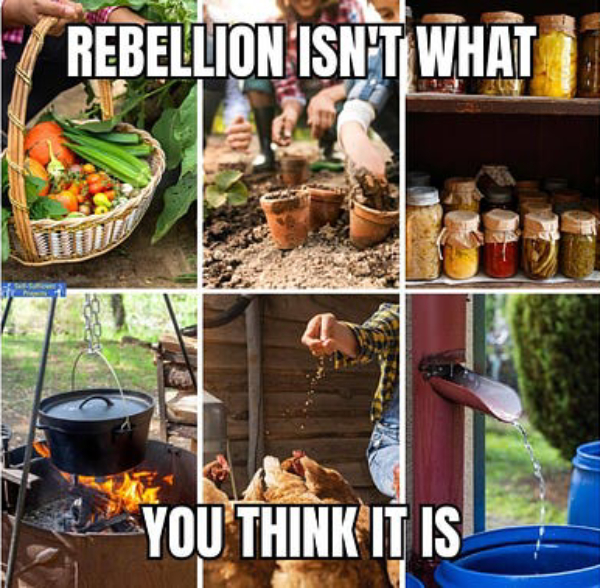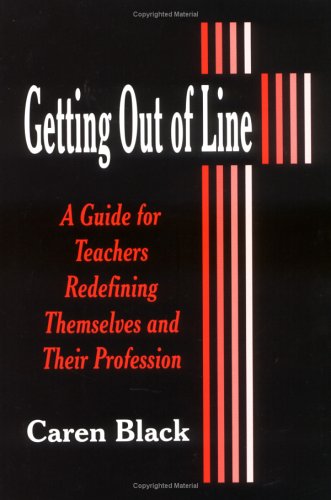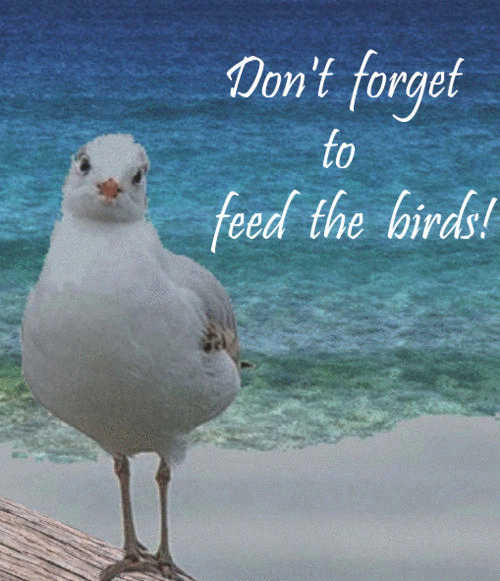It’s Spring! World events are monstrous, yet Spring makes us feel like we might be able to do something, have some effect, after all.
In portentious and uncanny ways, people around my age feel the stirring of Spring 1970, proud of the campus demonstrations generated by today’s brave students without what Col. Lawrence Wilkerson termed the “Damacles Sword” of the Draft, and also cognizant of the subsequent return of the DNC to Chicago in August - anxious in both cases that history will not repeat itself.
We feel called to join the fight, yet we're constrained from fighting that which we depend on. The kids will go home for the summer; the tents will fold and the campus meadows will be fertilized and mown. How can we be effective?
"Where is your water? Know your garden."
Everyone can build or share a "lifeboat" if they're serious about becoming dangerously self-sufficient - fundamentally independent of the system and somewhat of a threat to it. We begin by securing food and water, by ourselves, then by sharing this work with others. Spring is Nature's time for planting. Commendations to those who’ve already started edibles' seeds, planted edibles' starts! For the rest of us, we'll begin first on our own because it's late Spring and we must plant now as Nature will not wait for us to form a committee, and our next opportunity to plant will be a year from now. (For our friends in the Southern Hemisphere, it's "last chance" for collecting seeds for next season.)
Beginning on our own now also means we'll have "something to bring to the table" as we find those people with whom to share our garden's bounty of experiences as well as food, and later, our garden's seeds. These connections may well develop gradually, as we've all been separated over the past few years ('20 - '23), but they will happen because gardeners love to talk about their gardens.
Plant now!
Now! Now is the time to start. It’s not too late and it’s not difficult. Doing so can feel monumental. Having done so feels incredibly free and empowering.
First, you’ll need good “potting” soil, fortunately still available at garden centers. Compost is fabulous if you’ve got it or can get it from a friend or at a garden center.
Start with starts; it’s too late for seeds. Ask gardeners you know whether they have any starts left over that they didn’t have room to plant. Squash and potatoes are perfect and they are somewhat likely to be among the “I’ve got too many starts” group. You can still buy starts at garden centers. And, both are high on the “bang for the buck” scale: the food yield is large for the effort and space invested and they are hardy plants, not too fussy.
Important: Be sure to check with your local Extension service or garden center for which types of potatoes grow best in your area and which keep longest into winter. And, learn your planting zone; it saves time and trouble.
Plant your potatoes first.
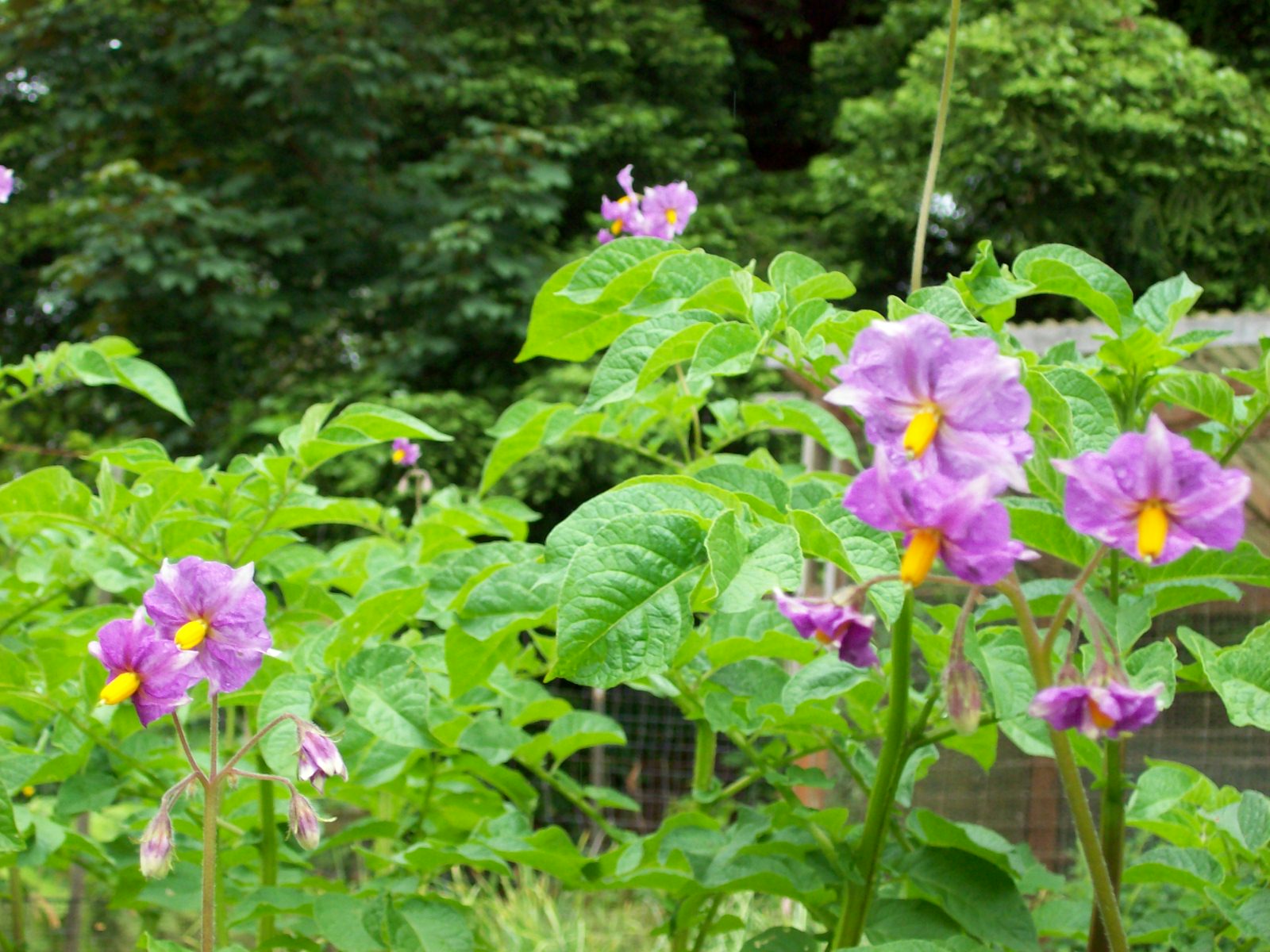
Potatoes in bloom- Image: TLA garden
This guy’s enthusiasm is as great as his information: https://www.youtube.com/watch?v=A6zhvmVuPZc
Here’s an article, if you prefer reading to video: https://www.hgtv.com/outdoors/flowers-and-plants/vegetables/how-to-plant-and-grow-potatoes
There is a wealth of more information online.
Then, after the potatoes, plant squash!
After your potatoes are in, plant squash! Helpful video: https://www.youtube.com/watch?v=PnjaqQZZAJM People often have “extra squash” so, again, ask friends for starts before you buy. Grow both summer and winter varieties if you plan to eat in both summer and winter. 😉 Summer squash is for summer eating and canning/freezing; winter squash will store long into winter. Squash appears to grow everywhere, but pests vary from area to area so that's worth checking out with the garden center or Extension service.
Squash in bloom - Image: TLA garden
Again: Why are you doing this?
Why have we all heard the phrase "peasant revolt"? Because peasants have land and food and can revolt. The early 20th Century saw more and more people moving from farms to cities until, by the end of WWII, only about 15% of Americans lived or worked on farms. Significantly, this movement parallels the gradual change from media referring to people as “citizens” to referring to people as “consumers” and preaching, even prosecuting, the "evils" of "socialism", "collectivism", "communism" or any other form of people working together. Yet why did our religions teach us it is the right way of life? To the system we live under, people dependent on a paycheck for everything - particularly a corporate paycheck - are people who can be led and controlled, while people with even some degree of self-sufficiency are dangerous.
The best way to resist is not to need those we're resisting for the food and water that keep us alive. "The only winning move is not to play."
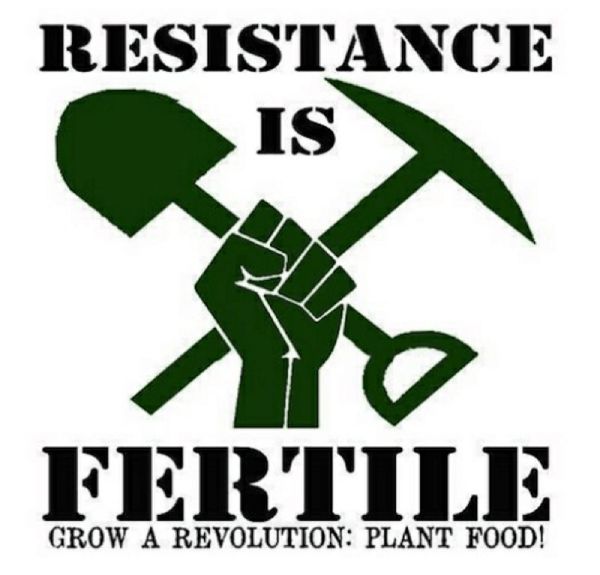
Image source unknown

